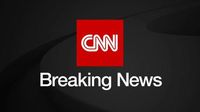PARIS — A French academic was recently barred from entering the United States after U.S. immigration officials discovered messages on his phone that criticized President Donald Trump’s administration. The incident, which has ignited a significant diplomatic concern, involved the researcher who was on his way to a conference in Houston, Texas, on March 9, 2025.
According to France's Minister of Higher Education and Research, Philippe Baptiste, the researcher had engaged in text conversations with colleagues and friends where he shared personal opinions about Trump’s policies, specifically relating to research funding. Such exchanges, described as complaints about the administration's approach to science and research, were flagged by U.S. Customs and Border Protection (CBP) officials during a routine inspection.
In a statement regarding the matter, Baptiste expressed his distress at the situation, emphasizing that “freedom of opinion, free research, and academic freedom are values that we will continue to proudly uphold.” He reaffirmed his commitment to defending the rights of French researchers abroad, stating that he would support them in maintaining their opinions while adhering to local laws.
This incident raises questions about the extent to which political views may influence border security measures and the rights of international scholars. Baptiste noted that while the United States retains the right to control its borders, the way this specific case was handled seemed excessive. “This measure was apparently taken by the American authorities because the researcher’s phone contained exchanges with colleagues and friends in which he expressed a personal opinion on the Trump administration’s research policy,” he explained.
The French foreign ministry also weighed in, saying it was notified of the event and “deplored the situation.” Despite this acknowledgment, they recognized the sovereignty of the United States in making such decisions. The American authorities' assessment labeled the researcher’s messages as “hatred towards Trump” and even suggested they could be “qualified as terrorism.” This characterization stunned French officials.
In response to this alarming incident, Baptiste has taken steps to support American scientists who are considering leaving the United States due to the oppressive climate for academic freedom under Trump’s recent policies. In a letter to French research institutions, he urged them to create opportunities for American researchers who may seek refuge from alleged political persecution.
Noteworthy is the fact that Baptiste has been vocally critical of the Trump administration’s significant budget cuts to scientific research, which have had a major impact on fields such as health, climate change, and renewable energy. “Since Trump took office, we have seen drastic reductions in science funding that undermine not just American research but global scientific advancement,” Baptiste stated during an interview on France Info.
In the aftermath of this controversy, some French universities, including Aix-Marseille University, have launched programs aimed at attracting U.S. researchers, particularly those working on climate issues, who may feel threatened in America. They have reached out to academic communities within the U.S., assuring potential applicants that France offers a welcoming environment conducive to innovation and academic freedom.
Furthermore, Baptiste shared a photo on social media showcasing a virtual meeting with an American researcher who was keen to relocate to France. This collaboration exemplifies the increasing trend of scholars seeking opportunities outside the United States due to prevailing political sentiments and restrictive policies advocated by the Trump administration.
Despite the seriousness of the incident involving the French researcher, CBP defended its actions, stating that all individuals entering the U.S. are subjected to inspection on a case-by-case basis. Hilton Beckham, the CBP Assistant Commissioner of Public Affairs, indicated that any flagged material on electronic devices prompts a more in-depth analysis during inspections. He firmly rejected claims that such decisions are politically motivated, asserting they are based solely on security assessments.
As this story develops, many observers are closely watching the implications for U.S.-France relations and the broader discourse on academic freedom internationally. Advocates for researchers and civil rights are likely to intensify their scrutiny of U.S. border policies in light of this incident, particularly as it highlights ongoing debates about surveillance, privacy rights, and political expression.
In conclusion, the refusal of entry for this French researcher underscores the fraught intersection of academia, politics, and immigration policy at a time when the world is more interconnected than ever yet grapples with issues of free speech and scholarly freedom. Moving forward, it becomes critical to ensure that researchers can travel freely to pursue knowledge without fear of repercussion based on their political beliefs.





